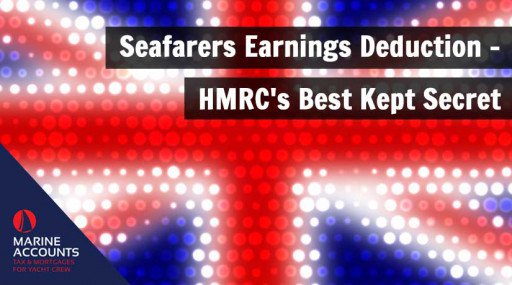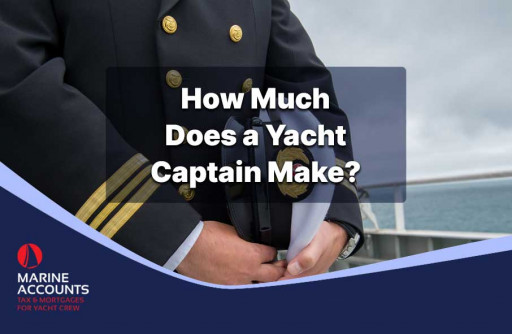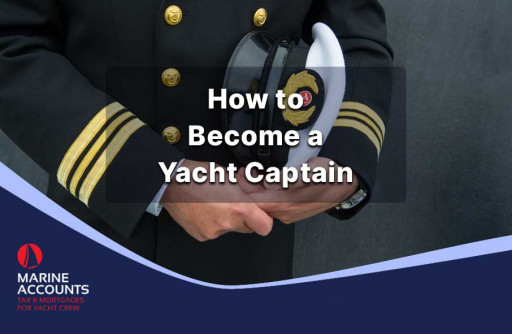Who Needs a Boatmasters’ Licence & How to Get One?
- Authors
-
-

- Name
- Patrick Maflin
-
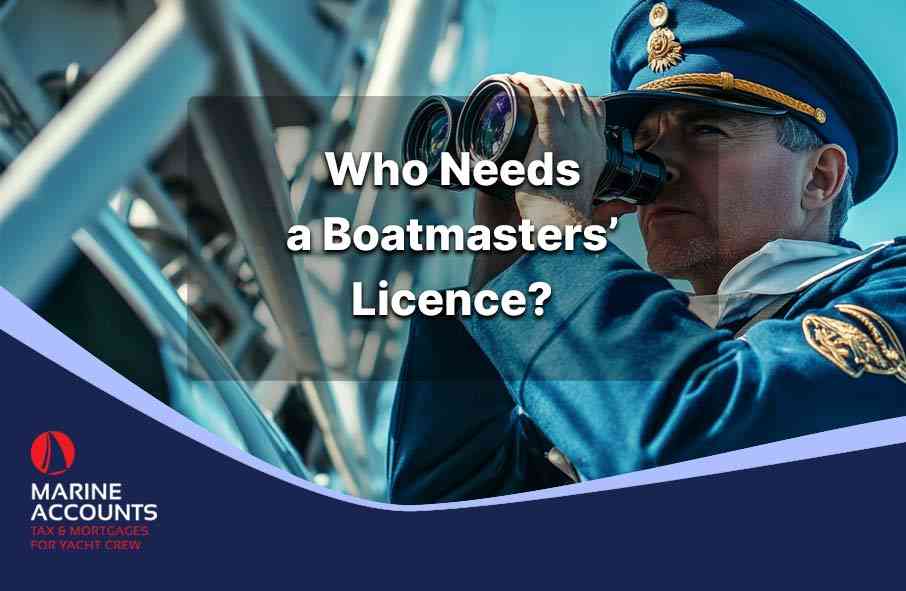
Whether you’re operating a passenger ferry on the Thames, captaining a riverboat in Manchester, or piloting a commercial barge through Britain's inland waterways, you may need a Boatmasters’ Licence (BML).
This nationally recognised certification, issued by the Maritime and Coastguard Agency (MCA), proves that you are qualified to safely operate a commercial vessel.
However, not everyone needs one, and for those who do, understanding how to obtain a BML can seem like navigating a maze.
This article will break down what a Boatmasters’ Licence is, who it applies to, and exactly how to go about getting one.
Chapters
- What is a Boatmasters’ Licence?
- Who Needs a Boatmasters’ Licence?
- Do Yacht Captains Require a Boatmasters' Licence?
- How to Get a Boatmasters’ Licence?
- What's Tested During the Exam?
- What Categories of Boatmasters’ Licences Are There?
- How to Be Eligible for a Boatmasters’ Licence
- Conclusion
What is a Boatmasters’ Licence?
A Boatmasters’ Licence is a professional qualification required to operate certain commercial vessels in UK waters.
It’s issued by the MCA under UK maritime regulations, and is primarily needed for those working on inland waterways, estuaries, and coastal routes.
The BML serves two purposes:
- it ensures operators have the knowledge, training, and skills necessary for safe vessel management
- it offers a legal framework that supports high standards in commercial marine transport.
The licence is required for roles such as river bus captains, water taxi operators, and some tug or cargo vessel crew, especially when passengers or commercial goods are involved.
Who Needs a Boatmasters’ Licence?
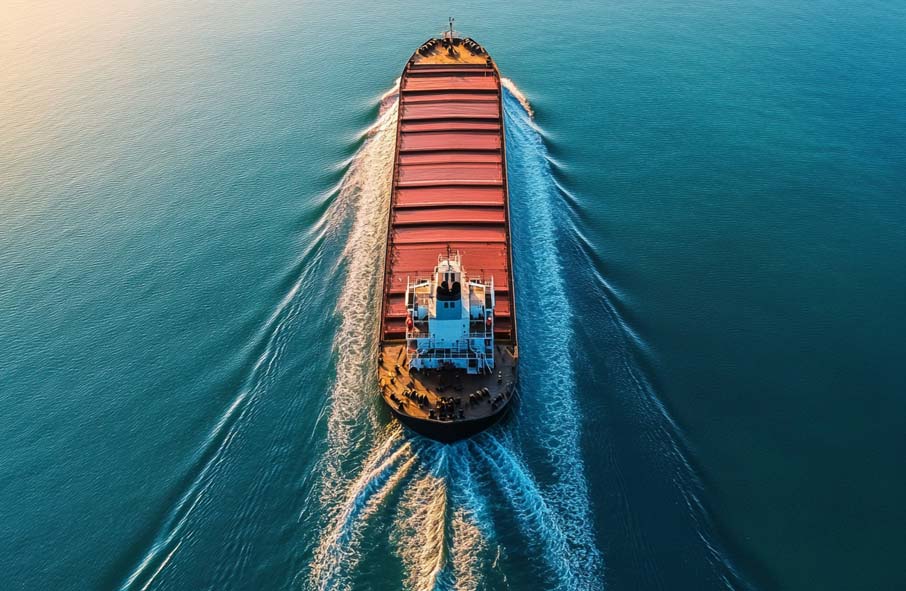
You’ll need a Boatmasters’ Licence if you are in charge of a commercial vessel operating in:
- Inland waterways (e.g. rivers and canals)
- Tidal rivers and estuaries
- Limited coastal routes within UK waters
This includes operators of:
- Passenger ferries
- Sightseeing boats
- Barges and cargo-carrying vessels
- Tugs, mooring launches, and support craft
- Workboats (in some cases)
If your vessel carries paying passengers or is used for hire or commercial transport, then it’s highly likely a BML is legally required.
There are some exemptions, particularly for small vessels or those operating in very limited local areas.
However, these are typically specific to vessel size, propulsion type, or location, and should always be verified with the MCA or a reputable training provider.
Do Yacht Captains Require a Boatmasters' Licence?

This is a common point of confusion, particularly among those transitioning from leisure to commercial yachting roles.
In most cases, yacht captains do not require a Boatmasters' Licence, but there are important exceptions.
If you are operating a private pleasure yacht (i.e. not carrying passengers for hire or engaged in commercial activity), you do not need a BML.
However, if the yacht is:
- Used commercially, such as for charter, instruction, or passenger transport
- Operating on inland waterways or UK coastal waters
- Of a type or size requiring certification by the MCA
…then a Boatmasters’ Licence may be required, particularly if the yacht does not fall under the standard RYA/MCA yacht certification route (such as Yachtmaster Offshore or Ocean).
Commercial yacht captains typically follow the RYA/MCA commercial endorsement pathway, which includes qualifications like:
- RYA Yachtmaster Offshore (with commercial endorsement)
- STCW basic safety training
- ML5 medical or ENG1 medical certification
However, if the yacht operates in UK inland waterways or has a dual function (e.g. a charter yacht acting as a passenger vessel on the Thames), then the Maritime and Coastguard Agency may insist on a BML, depending on the operation.
If in doubt, consult the MCA directly or speak to a specialist marine training provider to ensure you meet the legal requirements for your specific vessel and area of operation.
How to Get a Boatmasters’ Licence?
Eligibility Requirements
To apply for a BML, you must:
- Be at least 18 years old
- Meet the required medical fitness standards (via an ML5 or ENG1 medical certificate)
- Have a minimum amount of qualifying service time (usually 120 days for Tier 1, Level 2)
- Pass relevant training and assessments
Your previous experience on the water is considered, particularly if you have operated vessels commercially or under supervision.
However, new entrants can still qualify by completing appropriate training and gaining hands-on experience.
Courses & Training
Although not always mandatory, preparation courses are highly recommended.
These are usually run by accredited marine academies and cover:
- Navigation and chart work
- Rules of the road
- Boat handling
- Emergency procedures
- Safety and firefighting
You may also need specific additional endorsements for operations like night navigation, passenger carriage, or towing.
Some of the most respected providers in the UK include the South West Maritime Academy and SeaRegs Training.
What's Tested During the Exam?
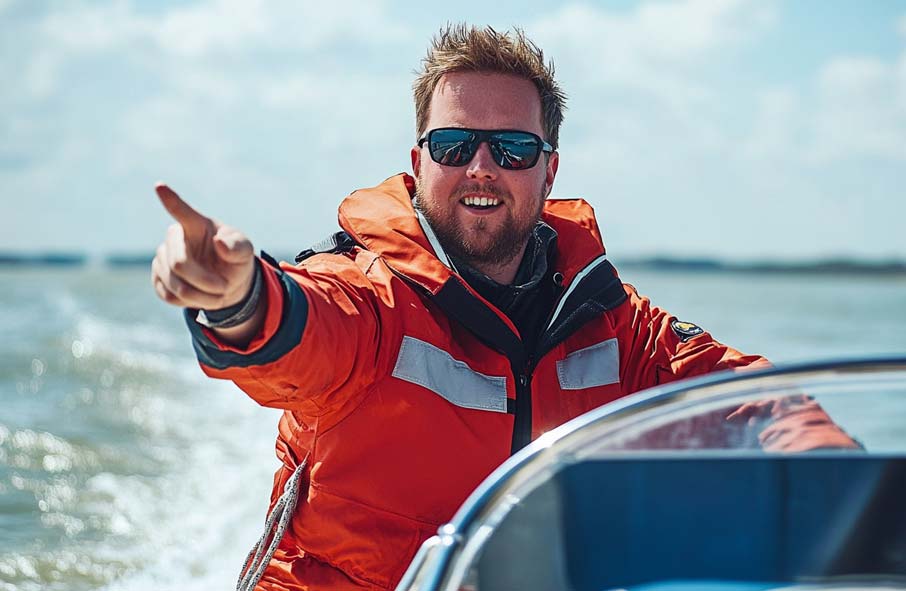 To receive a Boatmasters’ Licence, you’ll need to pass:
To receive a Boatmasters’ Licence, you’ll need to pass:
- A practical assessment (boat handling and safety drills)
- A written or oral exam (navigation, regulations, local knowledge if applicable)
The MCA will also assess your service record, references, and medical certificate.
For those applying under the Tier 1, Level 2 category, you’ll need to demonstrate a good working knowledge of a wider geographical area and vessel types.
Endorsements for specialised tasks, such as passenger transport or night work, require additional assessments or experience.
What Categories of Boatmasters’ Licences Are There?
The Boatmasters’ Licence is split into tiers and levels based on the area of operation and the type of work you intend to perform.
Generic Tier 1 Level 2
This is the most flexible type of licence.
It allows you to operate over a wide geographical area, including inland waterways, tidal waters, and some coastal routes.
It’s ideal for those working across multiple ports, rivers, or harbours.
Minimum required service time: 240 days (can be reduced with approved training).
Generic Tier 1 Level 1
Covers non-passenger commercial operations on inland and tidal waters.
This includes tugs, barges, and workboats without passengers.
Minimum required service time: 120 days.
Specific Tier 2 Level 2
Designed for operators working within a specific local area, such as a stretch of river or single harbour.
It may include passenger operations, but only within the approved zone.
Minimum required service time: 120 days.
Specific Tier 2 Level 1
The most restricted licence.
It allows vessel operation within a small, clearly defined area, often under strict limitations (e.g., harbour ferries).
It is sometimes granted for short-term or seasonal work.
Minimum required service time: 60 days, depending on the area.
How to Be Eligible for a Boatmasters’ Licence
To recap, you will need:
- A minimum level of service time on appropriate vessels.
- A valid ML5 or ENG1 medical certificate.
- To pass the MCA’s assessment and examination process.
- To submit a complete application pack, which includes sea service documentation, references, and evidence of training (if applicable).
Most applicants also benefit from voluntary training, which increases confidence, boosts pass rates, and helps with endorsements.
Many training providers offer simulator sessions and mock exams to help prepare for the real thing.
Conclusion
Whether you’re starting a career on the water or seeking to formalise your experience, the Boatmasters’ Licence is a crucial credential for commercial vessel operators in the UK.
It demonstrates your professional competence and opens the door to a wide range of inland and coastal marine careers.
If you're considering applying, start by logging your sea service and booking a medical assessment.
Then explore training options with a recognised academy and prepare thoroughly for your assessment.
And don’t forget, once qualified and earning, you may be eligible for Seafarers' Earnings Deduction (SED) - a unique tax benefit available to UK residents who work onboard ships operating outside UK waters for at least 183 daysin a tax year.
This can legally reduce your income tax to 0%, allowing you to keep more of your hard-earned salary.
Likewise, if you're a U.S. citizen working offshore, you may qualify for the Foreign Earned Income Exclusion (FEIE) under similar conditions.
In both cases, it’s wise to speak to a specialist seafarers' accountant who understands the regulations and can help ensure you stay compliant while maximising your income.
A good accountant will not only help you file correctly but ensure every pound and penny is protected.
Disclaimer: Any advice in this publication is not intended or written by Marine Accounts to be used by a client or entity for the purpose of (i) avoiding penalties that may be imposed on any taxpayer or (ii) promoting, marketing or recommending to another party matters herein.


